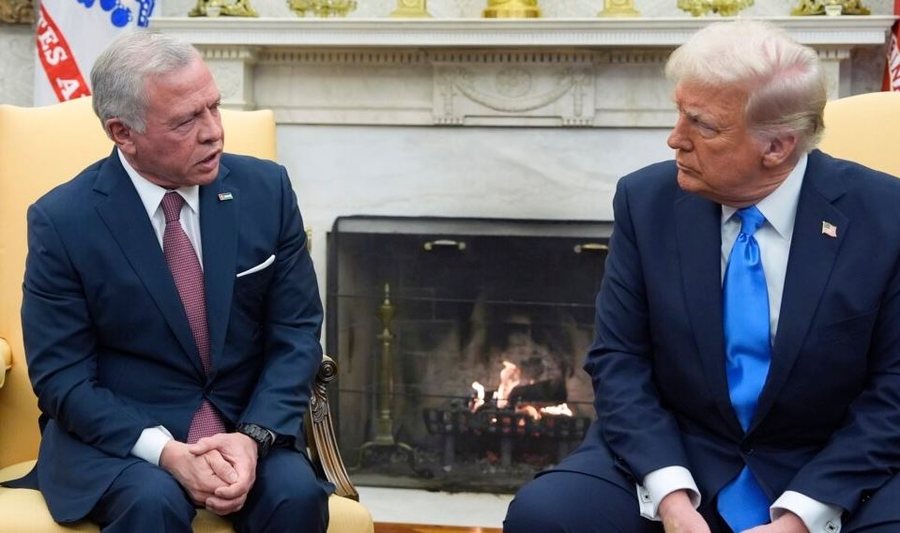
WASHINGTON - President Donald Trump reiterated his plan for the United States to take control of Gaza and permanently relocate its residents as he met with Jordan's King Abdullah amid widespread opposition to his plan from Washington's Arab allies, including Jordan.
Shortly after the king and his son entered the White House, reporters flocked to the Oval Office where President Trump signaled that he would not back down from his plan for the United States to take control of Gaza, relocate its beleaguered residents, and transform the war-torn territory.
“We’re going to take it. We’re going to keep it and we’re going to keep it. We’re going to take it eventually, we’re going to create a lot of jobs for the people of the Middle East,” Mr. Trump said, referring to Gaza. He added that his plan would “bring peace” to the region.
President Trump said he would consider whether to block aid to Jordan if the country refuses to accept Palestinian refugees.
King Abdullah has said in the past that he opposes any steps to annex territory and displace Palestinians.
Asked on Tuesday whether he would accept the Palestinians, he said he would do his best for his country and said Arab states would come to Washington with a counter-proposal.
"The question is how do we make this work in a way that benefits everyone," he said, without specifically saying whether he supports or opposes Mr. Trump's plan.
He was expected to tell Mr. Trump that such a move would fuel radicalization, spread chaos in the region, jeopardize peace with Israel and threaten the survival of his state.
Three out of four Americans — 74 percent — say they oppose the idea of the United States taking control of Gaza and displacing the Palestinians who live there, according to a Reuters/Ipsos poll conducted Feb. 7-9. The poll shows that Republicans are split on the issue, with 55 percent opposing it and 43 percent supporting it.
President Trump's proposal has brought a new dimension to a sensitive regional dynamic, including the fragile ceasefire between Israel and the Palestinian militant group Hamas.
Hamas said on Monday it would halt the release of Israeli hostages from Gaza until further notice, accusing Israel of violating an agreement to end attacks on Gaza. President Trump then proposed calling off the ceasefire if Hamas does not release the remaining hostages, which it seized on October 7, 2023, by Saturday.
President Trump said on Tuesday that "the situation will be unpredictable" if Hamas does not meet this deadline, adding that he does not think the Palestinian militant group will do so.
Jordan relies on American aid
Jordan, a country bordered by Saudi Arabia, Syria, Israel and the occupied West Bank with 11 million inhabitants, already hosts over 2 million Palestinian refugees, whose status and number are a source of concern for the country's leaders.
Amman, which relies heavily on military and economic aid from Washington, is also suffering from a 90-day aid blockade imposed by President Trump. The blockade has been lifted for Israel and Egypt, but the $1.45 billion in aid Jordan receives annually from the United States remains frozen pending a review of aid to other countries by the Trump administration.
King Abdullah "is in a very, very delicate position, in which the US has a lot of leverage," says analyst Ghaith Al-Omari of the Institute for Near East Policy in Washington.
But American aid to Amman "is not charity," says Al-Omari, who explained that Jordan is a base for American troops and their aircraft, is an important intelligence-sharing partner for Washington, and the Jordan-Israeli peace agreement, signed in 1994, is key to regional stability.
"The King hopes that these issues will balance the weight that the President has," says Al-Omari./ VOA (A2 Televizion)











